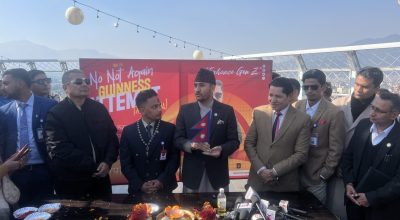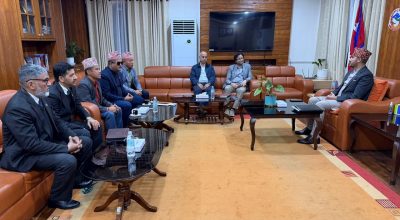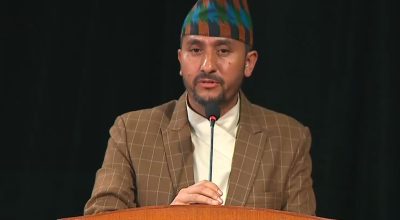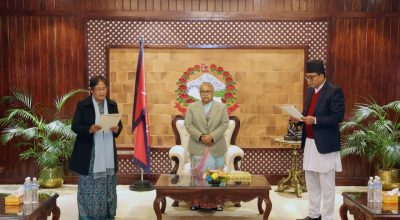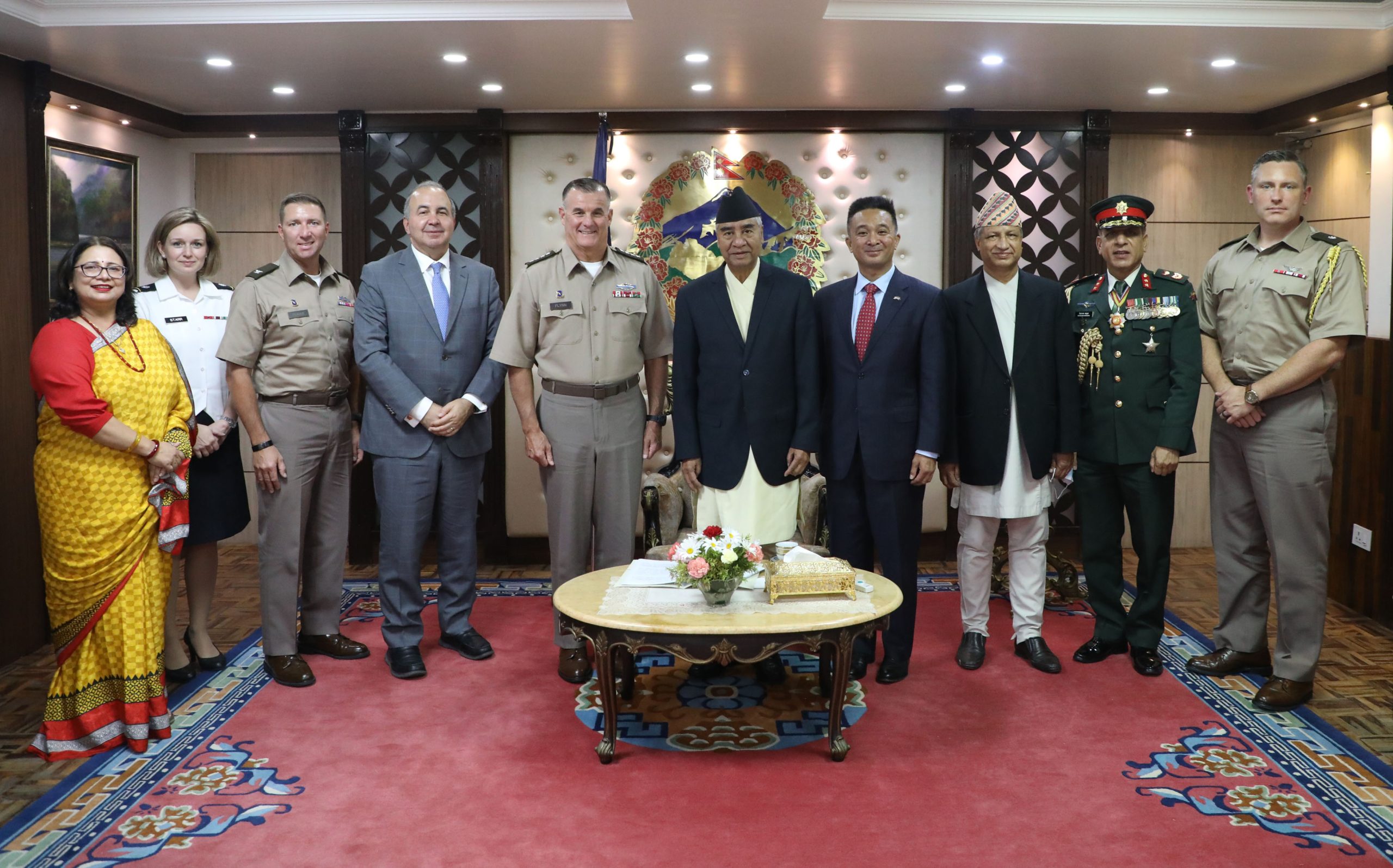
KATHMANDU: The United States government has floated a draft proposal for a State Partnership Program (SPP) to be signed between the US Department of Defense and the Nepali Ministry of Defence. The proposal includes letting some members of the US security forces stay in Nepal for an indefinite period.
After the draft of the proposed agreement came to notice, the stipulated visit of Prime Minister Sher Bahadur Deuba to Washington, DC, has been drawn into controversy. Even some members of the ruling alliance have sought clarifications from the prime minister about the proposal the two countries will sign.
Apparently, the US officials, in their recent engagements here, are putting pressure on Nepali counterparts to sign the agreement as soon as possible. As the US Army Pacific Commander General Charles Flynn recently asked Deuba to finalise the deal during his recent visit to Kathmandu, sources say it could be signed during Deuba’s US visit expected to be held in mid-July.
The obtained copy of the draft agreement for the State Partnership Program allows members of the US National Guard of Utah will be present in Nepal for training-related purposes and the Nepal Army will host them. Whereas the draft mentions the agreement to be valid for five years initially, it also states it will continue to exist unless terminated by any of the parties.
However, neither the Nepal government nor US government has commented on this draft proposal.
According to Article III: Agreed area of cooperation, US National Guard and Nepal Army cooperate on joint training exercises in the high altitude terrains in Nepal, joint disaster management and rescue exercises and operations in Nepal, joint fellowship programs in USA for the officers of Nepal Army, interoperability exercises in Nepal, light and non-lethal military equipment support on demand for the Nepal Army, cyber security training and equipment support for the Army, among others.
Likewise, the US government will provide Nepal Army a funding of US$ 500 million as a grant through which the cost of all the mutual cooperation under the agreement shall be covered.
The proposed agreement shall prevail for five years. However, any party may cancel the agreement prior six months written notice.
Draft copy of the agreement











